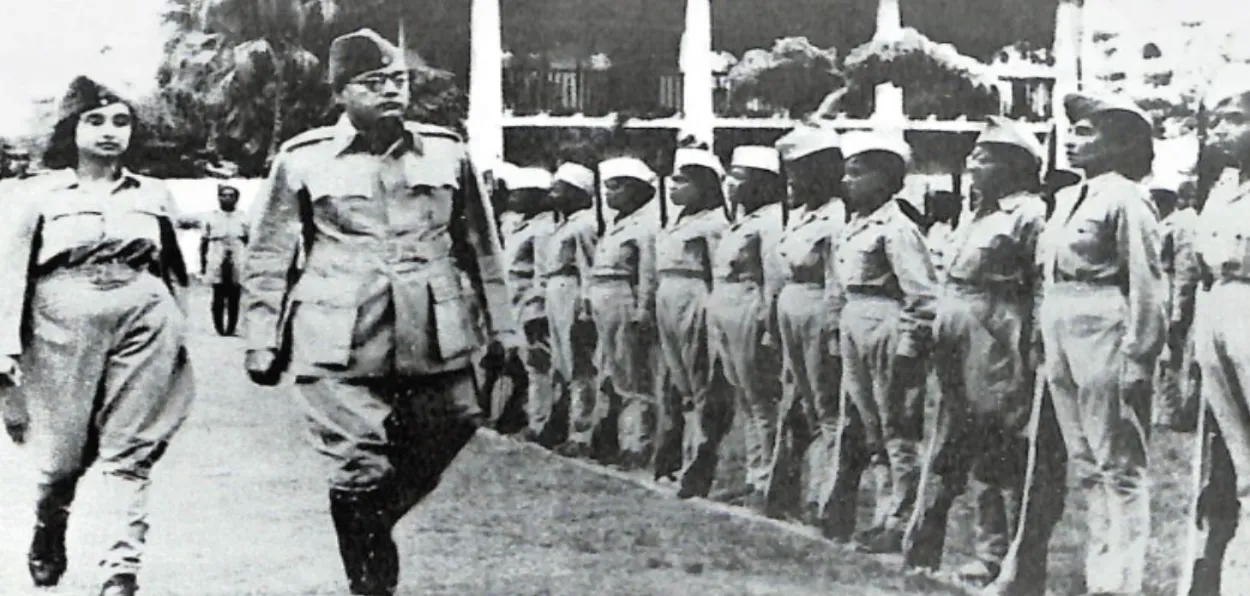
Saquib Salim
If one has to point out one thing that hurt the British Empire most in India, it has to be the Hindu, Muslim and Sikh unity with women fighting against the imperial crown a close second. The fear was not unfounded. In 1857, this was a united effort of Hindus and Muslims, where women like Rani of Jhansi and Begum Hazrat Mahal played important roles, which shook up the foundation of the empire in India.
A Slice Of History
The Second World War came to a close in late 1945. The soldiers of the Indian National Army (INA), originally called Azad Hind Fauj, were captured and brought in front of military tribunals as the Prisoners of War (PoW). The media coverage of the trials gave Indians the real picture of Subhas Chandra Bose-led INA. The force was painted as agents of the Japanese and fascists who wanted to capture India.
Indians came to know that INA was an independent Indian armed force and it was funded by the Indian diaspora. While in India, Congress and the Muslim League could not settle upon the question of religious communalism, in the INA Hindus, Muslims, and Sikhs dined together. It must be noted that in the Indian Army of the British Imperial Government, food for each religious group was cooked separately.
Moreover, the INA had an all-women combat force - Rani of Jhansi Regiment. It was led by Captain Laxmi Sahgal.
These narratives were a blow to the divisive politics of the Muslim League led by Mohammad Ali Jinnah. Though they could not argue that Muslims were not part of the INA as many of its top Generals were Muslims they tried to convince people that Muslim women were not a part of the INA.
Admission of women fighting the war along with Hindu women as well as men was a big blow for Muslim Pakistan. How could they admit that Muslim women could interact with Hindu men as equal soldiers on the battlefield?
On 22 December 1945, the Dawn, a Muslim League mouthpiece, carried a report that no Muslim woman ever joined the INA. The same day the INA Defence Committee countered this claim and news was carried in the National dailies, where it was reported, “Prominent among the Muslim women in the I.N.A. were Mrs. Saleem, wife of Capt. Saleem, now in the Red Fort, and two daughters of Major Wahab Khan who is still in Thailand working for the Indians there.”
Sultana Saleem whose husband Colonel Saleem was also serving the INA, was one of the prominent officers of Rani of the Jhansi Regiment. She had never been to India before the War broke out and was a resident of Burma. Like a majority of the soldiers of the regiment she responded to a call of Subhas Chandra Bose without any prior military training.
It was during the War that Sultana met another young INA officer Saleem, who crossed over to the Nationalist Army after serving in the Indian Army of the British Imperial Government. Both the INA officers got married with the blessings of Bose.
When the War was over, Saleem was imprisoned as a PoW. Sultana reached India as part of the first contingent of captured soldiers of Rani of Jhansi Regiment in February 1946. She interacted with the press and told people about the INA and the movement led by Bose.
Sultana Saleem advocated military training for the women of India and said that women must pay an equal part to men and have the same facilities for military training. Such training had helped them to be strong and had made them better able to face the difficulties of life. It inculcated a sense of discipline and fearlessness. If women came forward. It would instill courage in men to make greater sacrifices.
The Indian Express reported on 22 February 1946, “Mrs Sleem felt that there was only one country for her- Hindusthan - and only one nation - Hindustani. She did not believe in either communalism or provincialism. It was the oneness of India that appealed to her most. In East Asia, she said there was no consciousness at all of religious or provincial differences and no untouchability problem. She believed that if India had freedom her many problems could be solved without much difficulty.”
ALSO READ: Author of 65 books, Sheikh Maqbool Islam is an authority on Lord Jaganath
The INA had a good percentage of Muslim women soldiers as well who were fighting for the freedom of India along with their Hindu and Sikh sisters of Rani of the Jhansi Regiment.
